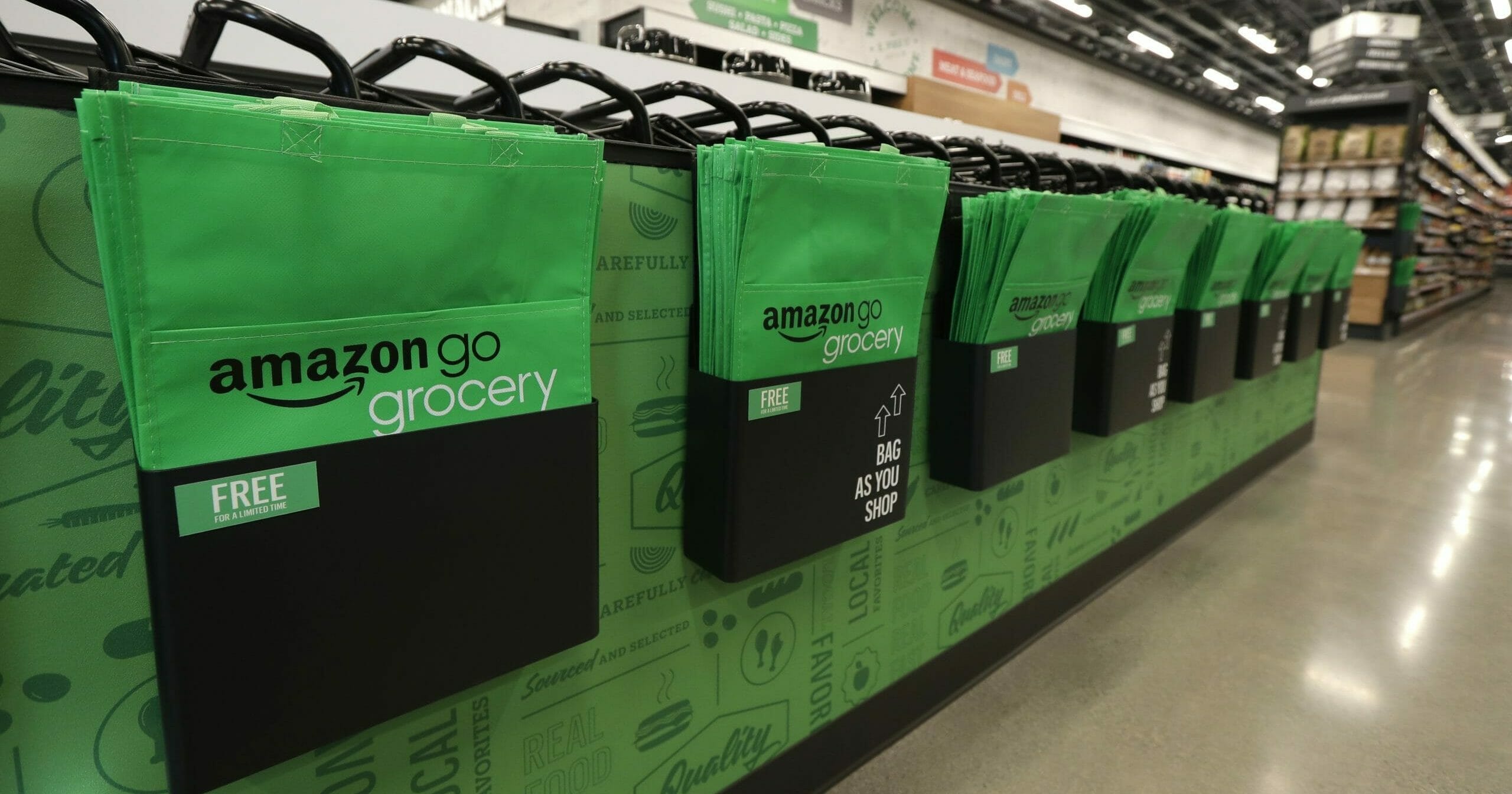
Amazon Opens New Grocery Store with No Checkout Lines
Amazon is aiming to kill the supermarket checkout line.
The online retailing giant is opening its first cashier-less supermarket, the latest sign that Amazon is serious about shaking up the $800 billion grocery industry.
At the new store, opening Tuesday in Seattle, shoppers can grab milk or eggs and walk out without checking out or opening their wallets.
Shoppers scan a smartphone app to enter the store. Cameras and sensors track what’s taken off shelves. Items are charged to an Amazon account after leaving.
Called Amazon Go Grocery, the new store is an expansion of its 2-year-old chain of Amazon Go convenience stores.
At 10,400 square feet, the supermarket is more than five times the size of the smaller stores, and stocks more items beyond the sodas and sandwiches found at Amazon Go.
The new market stocks fresh baked bread, blood oranges, butternut squash and other food to whip up dinner or stock the fridge.
Amazon is not new to groceries. It made a splash in 2017 when it bought Whole Foods and its 500 stores.
It’s also been expanding its online grocery delivery service. But it’s still far behind rival Walmart, the nation’s largest grocer, which has more than 4,700 stores. Walmart has also found success with its online grocery service that lets shoppers buy online and then pickup at stores.
Amazon plans to open another type of grocery store in Los Angeles sometime this year, but the company said it won’t use the cashier-less technology at that location and has kept other details under wraps.
At the new Seattle store, families can shop together with just one phone scanning everyone in.
Anything they grab from the shelf will be added to the tab of the person who signed them in. But shoppers shouldn’t help a stranger reach something from the top shelf: Amazon warns that grabbing an item for someone else means you’ll be charged for it.
While cashier-less stores remove a major annoyance for customers, waiting in long lines to pay, it also takes away parts of supermarket shopping that some customers may miss.
There’s no one to bag groceries at Amazon Go Grocery. Instead, Amazon gives out reusable bags so shoppers can fill them as they shop. And there’s no deli counter, butcher or fishmonger. Instead, packaged sliced ham, steaks and salmon fillets are sold in refrigerated shelves.
Other retailers and startups have been racing to create similar cashier-less technology. Earlier this month, for example, 7-Eleven said it is testing a cashier-less store inside its Irving, Texas, offices.
Amazon declined to say if it plans to open more cashier-less grocery stores.
Since it launched its first Amazon Go store in 2018, the Seattle-based company has opened about 25 of them in big cities, such as Chicago, New York and San Francisco.
The Western Journal has reviewed this Associated Press story and may have altered it prior to publication to ensure that it meets our editorial standards.
Truth and Accuracy
We are committed to truth and accuracy in all of our journalism. Read our editorial standards.
Advertise with The Western Journal and reach millions of highly engaged readers, while supporting our work. Advertise Today.












